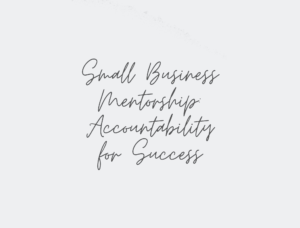Introduction
Stagnation is not an option in today’s fast-paced and competitive professional environment. Prolonged professional growth is essential for success and flourishing. It involves embracing change, capitalizing on opportunities, and continuously expanding one’s skills and knowledge one’s skills and knowledge. This blog post will examine tried-and-true strategies that can launch your career to unprecedented heights. These strategies will enable you to accelerate your career growth, whether you are a young professional just beginning out, a mid-level executive seeking to ascend the corporate ladder, a job prospect anxious to stand out, or a career changer seeking new horizons.
Understanding Your Professional Goals
Assessing Your Skills, Interests, and Values
Knowing oneself is the first step to job progress. A personal SWOT analysis identifies your Strengths, Weaknesses, Opportunities, and Threats. What do you think you could do well? Which areas require improvement? Please take a look at your hobbies and interests. Favorite activity? What motivates you? Finally, could you consider your values? What matters in a job? Work-life balance, money, recognition, or impact? Assessing your abilities, interests, and values reveals your professional identity and places for improvement.
Setting Clear and Achievable Career Goals
After identifying your professional identity, develop realistic career goals. Goals should be SMART—Specific, Measurable, Achievable, Relevant, and Time-bound. Instead of “I want to advance in my career,” say, “I want to get promoted to a managerial position in the next two years.” Setting clear, defined, and time-bound goals helps you focus your efforts and resources. It also helps you track your progress, make modifications, and stay inspired in your work.
Networking Effectively
Building a Strong Professional Network
Developing a strong professional network is crucial to job growth. Who you know and who knows you matter. Start by building relationships with your company’s coworkers, executives, and clients. Attend industry events, conferences, and seminars to meet like-minded people and mentors. Networking involves creating and maintaining relationships. Be sincere, helpful, and interested. Unexpected connections lead to new opportunities.
Leveraging Social Media Platforms for Networking
Social media sites are great networking tools nowadays. LinkedIn is essential for networking, joining relevant groups, and exhibiting talents and achievements. Twitter lets you follow and interact with industry thought leaders, while Facebook and Instagram let you reveal more of yourself and build relationships. Share intelligent stuff, comment on topics, and contact someone you appreciate. Social media may boost your industry awareness, personal brand, and network.
Upskilling and Continuous Learning
Importance of Staying Relevant and Acquiring New Skills
It’s important to stay current in today’s job market, which is always changing. Technologies that improve and change how things work are always changing industries. So, constantly seeking out and gaining new skills—”upskilling”—is key to staying competitive. By always learning and changing, you show that you are proactive, improve your performance, and make yourself more appealing to current and possible jobs. Upskilling could also help you get new job options that weren’t possible with the skills you already had.
Online Courses, Workshops, and Certifications
Online courses, seminars, and certificates are great for upskilling. These platforms make learning new skills or improving old ones flexible and economical. Coursera, Udemy, and LinkedIn Learning provide many courses in many subjects at your speed. Online and in-person workshops provide greater hands-on learning. Certifications, however, demonstrate your expertise and provide you an edge. They boost your résumé and demonstrate your dedication to professional growth. It’s worth the professional progression investment.
Setting and Achieving Career Goals
Creating an Action Plan
A career action plan guides you toward your goals. It separates your objectives into smaller, doable activities and outlines the procedures and resources you need. It should clarify what has to be done, when, and by whom (if others are involved). ‘Enroll in an online course, ‘ ‘Dedicate two hours each day for studying,’ and ‘Complete the course and achieve certification within three months’ can step in your action plan to learn a new programming language. A successful action plan adapts to changing conditions.
Tracking Progress and Making Adjustments
Tracking progress is essential after creating an action plan. This shows your progress, what’s working, and what’s not. Are you reaching your job goals? If not, what’s stopping you? Periodic evaluations allow modifications. Due to workload, you may need to change your timeframe or daily plan to catch up in your programming course. Progress monitoring motivates, holds you accountable, and assures professional progression results.
Building a Personal Brand
Developing a Strong Online Presence
A solid online presence is crucial for making an impact and building credibility in the digital era. A strong online presence goes beyond having a social media profile; it’s about aligning your digital footprint with your brand. Always publish useful information, communicate with your audience, and join industry debates. Use relevant keywords, good images, and succinct descriptions to optimize your profiles. Make your internet presence count—it’s frequently potential employers’, partners’, or clients’ initial impression.
Showcasing Expertise and Accomplishments
Personal branding is your professional reputation. It’s your reputation. Displaying your skills and achievements is crucial to creating this brand. Highlight your successes throughout your networks, whether it’s a project, accolade, or unique solution. Try not to brag. Instead, show how you can benefit a team or organization with your achievements. Sharing your expertise enhances your authority and strengthens your brand by contributing to the community.
Seeking Mentorship
Benefits of Having a Mentor
As you work to move up in your job, a guide can help you in many ways, including:
Guidance and Advice:
These people are called mentors, and they can help you learn from their rich experience. They can give useful tips and information to help you deal with problems and make smart choices.
Increased Visibility:
By introducing key persons within your field, a mentor can allow you to open doors to new prospects.
Skill Development:
Your mentor can help you improve important work skills like problem-solving, communication, leading, and making decisions by giving you advice and comments.
Enhanced Confidence:
Mentors can help you feel more confident by telling you about their experiences and encouraging you. This can push you out of your comfort zone and into new challenges.
Constructive Feedback:
Mentors can give helpful input from a neutral point of view. The comments you’re getting here are very helpful for your personal and business growth.
Personal Growth:
It’s possible for a guide to help you in more ways than one. They can help you determine your values, skills, and flaws, leading to more self-awareness and growth.
How to Find and Approach Potential Mentors
Find a mentor with the talents, values, and achievements you want. Start with your company, professional association, or alums network. Industry seminars, conferences, and events offer mentorship possibilities. Address a potential mentor respectfully and explicitly when requesting mentoring. Applaud their efforts and explain why their mentoring may be useful. Show your eagerness to learn and progress. Remember, mentorship is mutual. While you may learn from their expertise and advice, highlight your viewpoints and observations.
Balancing Ambition and Work-Life Harmony
Strategies for Maintaining a Healthy Work-Life Balance
Finding a good mix between work and life is important for your health and effectiveness. Take a look at these strategies:
Prioritize and Plan:
Figure out what’s most important in your personal and professional life, then set priorities based on that. Plan your day ahead of time to make the most of your time.
Set Boundaries:
Set clear limits between your work life and your home life. This could mean setting aside a certain area at home for work or turning off work-related alerts when the office is closed.
Take Breaks:
Taking breaks often can help you stay alert and get more done. You can clear your thoughts by going for short walks or meditating.
Stay Active and Healthy:
As part of your daily schedule, make sure you get enough exercise and eat well. Mental strength is greatly affected by physical health.
Time for Self-Care:
Set aside time to do things you enjoy and help you relax. In this case, it could mean reading a book, doing something fun, or hanging out with friends and family.
Avoiding Burnout While Pursuing Career Advancement
Getting ahead in your career is important but shouldn’t cost your health and happiness. To keep from getting burned out, do these things:
Listen to Your Body:
Watch out for signs of stress like being tired, getting angry easily, or not being able to do as well at work. If you deal with these issues quickly, you can stop things from worsening.
Manage Stress Effectively:
Use methods to deal with stress, like yoga, deep breathing, or awareness. They can help you keep your emotions in check.
Seek Support:
If you feel like you can’t handle everything, don’t be afraid to ask for help from coworkers, friends, or a professional psychologist. Talking about your worries and thoughts can help you feel less stressed.
Maintain Work-Life Balance:
Please don’t make any concessions about your own time. Ensure that you create time in your schedule for leisure and relaxation.
Celebrate Achievements:
Celebrating small wins and big steps forward can keep you motivated and stop you from feeling stuck. Remember that getting ahead in your job is a process, not a race.
Staying Updated on Industry Trends
Importance of Staying Informed About Industry Developments
Staying updated on changes in your field is important for professional growth and job progress. It helps you stay relevant and competitive in a business world that is always changing. It also encourages new ideas and creativity and lets you make smart choices. Following industry trends allows you to plan for changes and problems, spot chances, and make plans based on your learning. This proactive attitude can help you do much better at work and build your reputation in the professional world.
Engaging in Industry Events, Conferences, and Publications
Going to workshops and events in your field is a great way to stay on top of the latest trends, ideas, and inventions. You can interact with thought leaders, friends, and possible partners on these platforms, making sharing knowledge and growing your network easier. Also, subscribing to publications specific to your field can give you in-depth studies and updates that will greatly help your professional growth. Participating in these events keeps you informed and shows that you want to keep learning and growing in your field.
Conclusion
Finally, figuring out how to move up in your job is both difficult and gratifying. Not only is reaching career milestones important, but so is keeping a good work-life balance, avoiding burnout, and keeping up with changes in your field. A guide can be very helpful in showing you the way and being there for you as you go. Using the discussed tips, you can simultaneously handle your job growth and care for your health. Remember that moving up in your job is not a goal but a constant learning, growing, and changing process.
Frequently Asked Questions
Q1: What is the role of a mentor in career advancement?
A guide is very important for job growth because it gives advice, shares information, and experiences, and gives feedback to help you find your way in your work.
Q2: How can I maintain a healthy work-life balance?
To keep a good work-life balance, you need to plan and prioritize your tasks, set limits, take regular breaks, stay healthy and active, and set aside time for self-care.
Q3: What are the signs of burnout?
Feelings of stress, tiredness, and inability to focus are all signs of burnout. To avoid burnout, you should focus on your body and deal with stress healthily.
Q4: Why is staying updated on industry trends important?
It’s important to keep up with changes in your field for professional growth and job development. It helps you stay competitive, encourages new ideas and imagination, lets you make smart choices, and can make you better at your job.
Q5: How can I stay informed about industry developments?
You can stay current on the latest trends, insights, and innovations in your field by attending events and conferences and subscribing to magazines that are special to your field.





